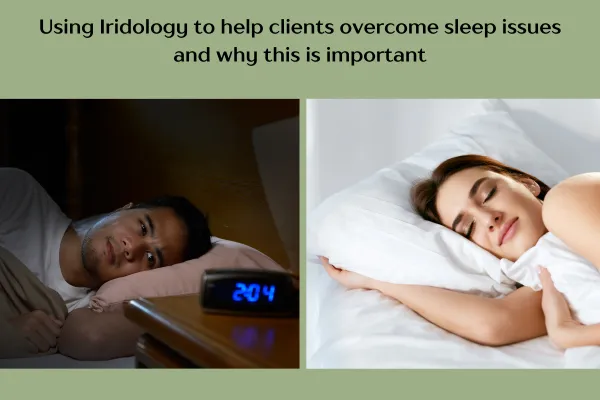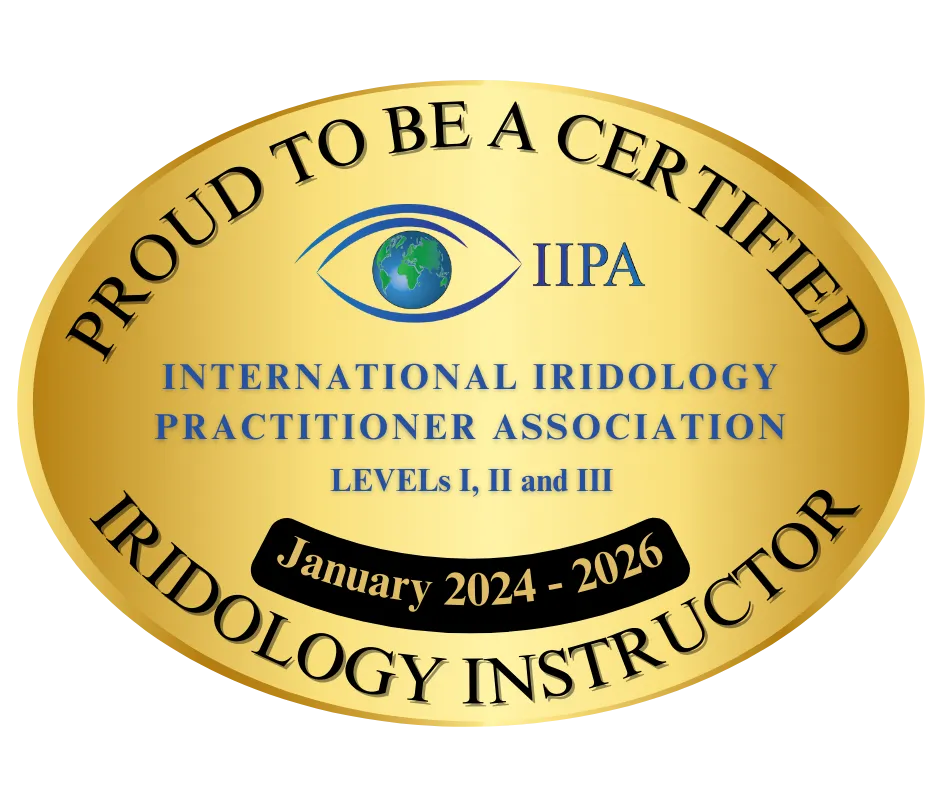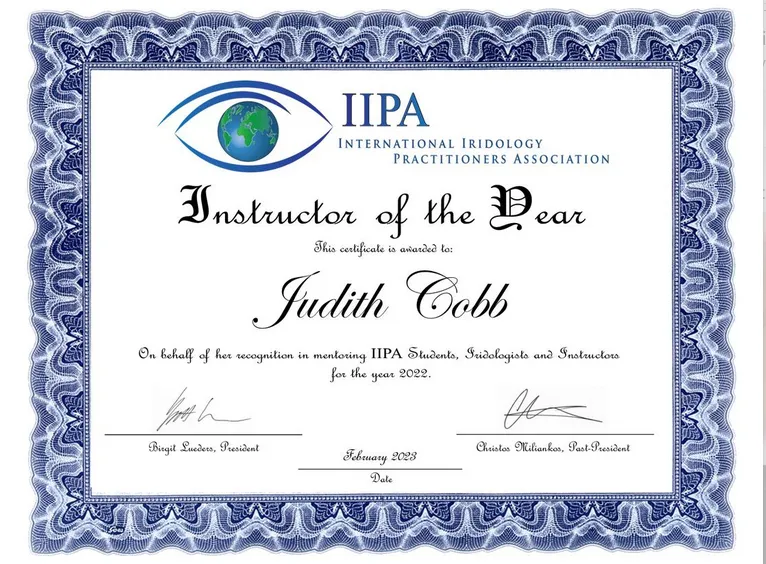Assessment System & Advanced Courses for Health Professionals

Sleep and iridology
Sleep as a Pillar of Health
Sleep is a crucial pillar of health.
It’s interesting how many people think, as is evidenced by their actions, that sleep is a necessary inconvenience, one thing that can be skimped on and short-changed without consequences.
It’s true, some people need less sleep. And most need more than they are getting on a regular basis. How much you need is up to you to figure out.
Consistently waking up tired and lack-lustre is an indication that something is wrong. It’s a safe bet that eating well and taking supplements won’t cover sleep-deprived tracks forever.
Why Sleep Is Important
There are iris markers that can suggest an increased risk of sleep issues. Before we list them, let’s look into why sleep is important.
And according to research reported by Harvard Health Publishing sleep deprivation is associated with inflammatory markers, including cytokines, interlekin-6, and C-reactive protein. Added to this, people who sleep poorly are at greater risk for cardiovascular disease, high blood pressure, and diabetes.¹
Key Points to Assess When Evaluating Sleep
Here’s where to start when evaluating sleep with a client:
Snoring>>> recommend your client get a sleep study done to see if ne/she have sleep apnea. Encourage your client to follow his/her doctor’s recommendations for respiratory aid devices. While some people feel a stigma associated with using CPAP and similar machines, a number of my clients feel so well-rested for using them that they would never go back to not using them.
Aches and pains that disturb sleep during the night >>> you may need to recommend a good physiotherapist, regular massages, more or less or different physical activity, a new mattress and pillow.
Up more than once in the night to use the bathroom>>>there are supplements, food tips, and lifestyle tips that may help, and it may be a good idea to get some lab tests done.
There are also simple lifestyle things that can be done to enhance sleep.
These 10 Commandments of Better Sleep are some of them.
1.Schedule a relaxing period before going to sleep to separate body and mind from the day’s hassles. Avoid using computer screens, phone screens, and TV screens for 2 hours before retiring to bed. The blue light they emit wreaks havoc on the production of melatonin (the sleep neurotransmitter).
2. Use the bedroom primarily for sex and sleep and not as an all-purpose activity area. Again, no TVs or computers in the bedroom! If a smartphone is used as an alarm clock, place it face down on top of a towel (to soften the noise if it beeps in the night) on the nightstand.
3. The bed should be comfortable, large enough, in a quiet, dark room and at the right temperature. This may require altering the choice of bedding and PJs.
4. Keep a regular schedule, going to bed and getting up at the same time each day. Learn to relax in bed until sleep comes. This may take time to learn!
5. Be consistent about taking naps. Take one regularly or not at all.
6. Exercise regularly in the morning or early afternoon, but do not engage in strenuous activity late in the evening. A relaxing, mild physical activity might be helpful close to bedtime.
7. Avoid caffeine in all forms. Smoking close to bedtime causes further sleep disruption. Both caffeine and nicotine are adrenal stimulants. Adrenals that are revving prevent sleep.
8. Don’t use alcohol or street drugs as sedatives, this includes cannabis. While they might help with falling asleep initially, they lead to sleep disruption and deprivation of deep sleep, sometimes for years after stopping regular use.
9. For evening hunger, a small snack that includes a light protein is appropriate if elevated blood sugar is present, or a complex carb if blood sugars are in the healthy range. Heavy meals close to bedtime can result in discomfort and bizarre dreams.
10. If sleep is not coming, relaxing in bed while meditating or clearing the mind can offer some restoration.Getting up to do ‘something’ means turning on lights and messing with serotonin-melatonin cycles. Alternately, try reading in bed using a book light that illuminates the page instead of shining upward.
Iris Markers to Consider Evaluating
Iris markers that can suggest an increased risk of sleep disruption tendencies:
Anxiety tetanic subtype
Contraction furrows
Any marking in the hypothalamus reaction field
Pigment of any color
Any markers that suggest the risk of blood sugar instability
Other Considerations for Enhancing Sleep
Certainly, there are herbs, vitamins, essential oils, dietary changes and relaxation techniques that can also have a positive effect and may be more accurately chosen when iris markers are taken into consideration.
Methodology
1 Document client symptoms, diet, lifestyle, stress factors, medications, surgeries, supplements being used
2 Assess irides
3 Review 10 Commandments of sleep
4 Make supplement recommendations based on steps 1 and 2
Footnotes
1 https://www.health.harvard.edu/healthbeat/how-sleep-deprivation-can-cause-inflammation#:~:text=Research%20has%20found%20that%20sleep,and%20diabetes)%2C%20and%20others.




© 2024 and beyond, Iridology Education. All rights reserved.
Reach us by email: [email protected]
Reach us by phone: 1-403-850-5503

